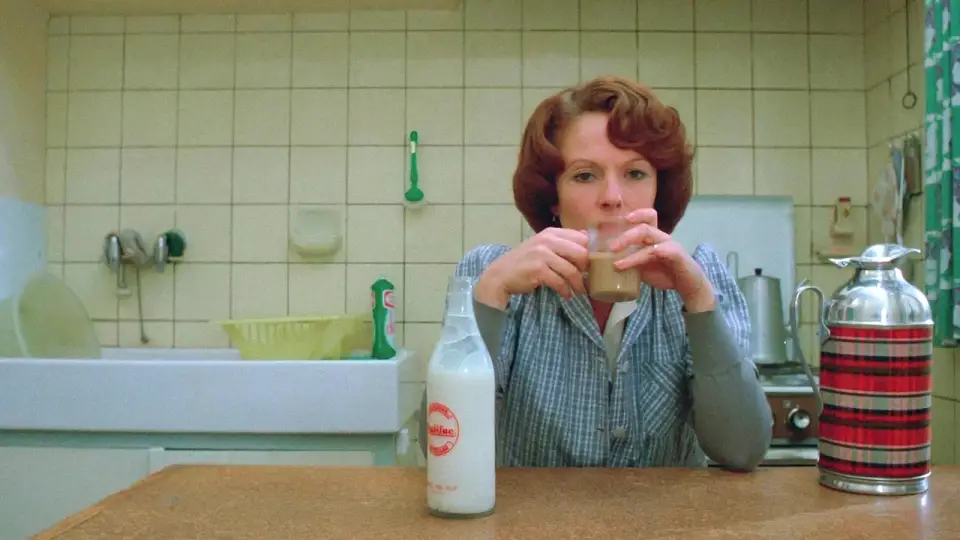Chantal Akerman’s film, Jeanne Dielman, 23 quai du Commerce, 1080 Bruxelles, really gets under your skin. On the surface, you’re just watching a woman’s life. Cooking. Cleaning. Repeating. It’s slow. Almost nothing happens. But I can’t shake the feeling that there’s something huge hidden in those boring moments. It’s a movie that asks big questions without giving any easy answers. In the text that follows, I’m digging into those questions about life, freedom, authenticity and what it all really means.
Table of Contents
Capturing the Realness of Everyday Life
I’m really struck by how Jeanne Dielman shows a slice of life that feels so authentic. You’re pulled into a home that’s perfectly set in its era, like a time capsule. The film follows a few hours of a woman’s simple, everyday routine—cooking, cleaning, the works. But here’s the thing: real life doesn’t always come with a neat storyline. It’s raw, sometimes messy, and the movie leans into that realism. I love how it doesn’t shy away from showing the boring bits, but that makes it tough to weave a tight plot. You feel like you’re just watching life unfold, and that’s what makes it so powerful.
Is There a Universal Truth in the Ordinary?
I keep thinking about whether this super-specific story holds bigger truths. Can something so tied to one time and place speak to everyone? You see this woman in her historical setting, and it makes you wonder: does her life offer lessons that work for any era or culture? Or is it just stuck in its own little world? The film pushes you to question if authenticity—showing life exactly as it is—can reveal something universal. I find myself asking if the mundane details, like her daily chores, connect to something deeper that we all get, no matter where or when we live.
Does History Still Matter to Us?
The movie paints a historical picture, but I’m not sure how it vibes with today. You watch this woman spend hours knitting or doing household tasks, and it feels so distant. I think back to my own life in the early 2000s—random moments, small struggles—and wonder if they mean anything now. Do those past experiences shape who we are today, or are they just noise? The film makes you question if history, personal or shared, has any real weight in our modern world of tech and fast-paced change. It’s like asking: why care about the past if it doesn’t help us move forward?
Wrestling with Meaning and Meaninglessness
This film really digs into the mundane, and I’m left wondering: what’s the point of all these daily tasks? Cleaning, cooking, repeating—it’s most of life for this woman. Do these routines hold any truth, or are you just going through the motions to survive? I feel like the movie’s asking if authenticity lies in just accepting your circumstances. Then there’s this bigger question: if everything feels meaningless, why do we keep searching for meaning? It’s a weird paradox. Feeling like nothing matters makes you crave purpose even more. You’re caught in this tug-of-war—chasing meaning feels pointless, but giving up on it feels wrong too. I bet you’ve felt that tension before, right?
Fate, Freedom, and Society’s Chains
I don’t buy the idea that life’s all mapped out like some predetermined equation. The woman in the film seems to live for one thing: caring for her son. Everything else—her own dreams, her identity—takes a backseat. You see her in this post-war world, maybe after WWII, where her options are brutally limited. She’s stuck with childcare or sex work to make ends meet. It’s tough to watch because you realize society’s boxing her in, leaving her with no real freedom. I keep thinking: how much choice do any of us have when the world sets such tight rules? The film makes you question whether you can ever truly “rule your fate,” or if that’s just a comforting lie we tell ourselves.
Trauma, Routine, and the Breaking Point
The movie carries this heavy sense of trauma. You can feel the woman’s exhaustion, like she’s been worn down by life. She dives into routines—those repetitive chores—to find some kind of comfort or control. But it backfires. You see her getting more and more isolated, cut off from anything vibrant or alive. I wonder: how long can someone live like that before they crack? The film’s big outburst at the end hits hard, but it’s so unclear why it happens when it does. What pushed her to that breakdown? Was it the weight of all those endless routines, or something deeper? You’re left wanting more context to figure out what sparked that explosive moment.
Boredom, Persistence, and Hidden Conflict
At its core, I think Jeanne Dielman is about boredom, routine, and just keeping going—persistence. These might sound like clichés, but they feel like the heartbeat of authenticity. You watch this woman’s life, so ordinary it’s almost painful, and yet there’s something real about it. That final violent act, like a sudden “war” in her quiet world, shows that even the most boring moments can hide conflict. It’s like the film’s saying: no matter how dull life seems, there’s always something simmering underneath. I find myself thinking about how our own routines might be hiding bigger battles we don’t even see coming.
- Costa Rica Reptiles – A Guide to Lizards, Snakes, and Crocodilians
- Costa Rica Frogs – A Guide to the Jewel-like Amphibians
- Costa Rica Wildlife – A Guide to Its Most Fascinating Mammals
- What is Alavism: Suuni or Shia?
- What Was Wittgenstein’s Main Idea: Ideas, Legacy, and Key Questions
- Shrek and Maurice Tillet: An Uncanny Connection
- The Secret to Jordan Peterson’s Debate Strategy: It’s All a Word Game
